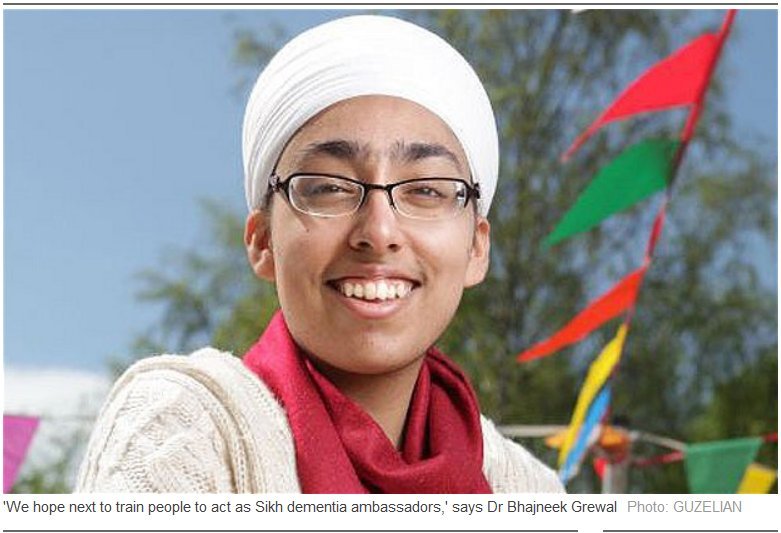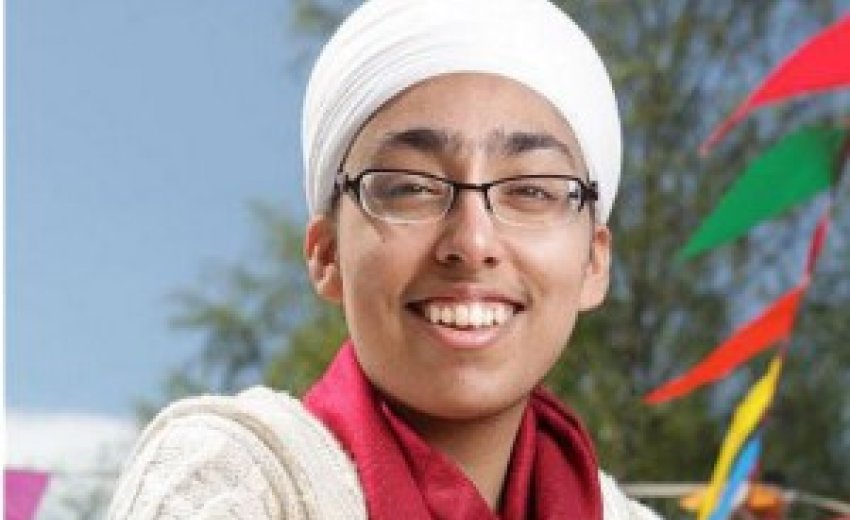We meet the Bradford doctor working with her local Gurdwara to improve access to information and support

05 May 2014: Dementia can make all types of communication difficult for patients and carers – especially when English is not your first language. Among the Punjabi-speaking older Sikh community, where there is a particular stigma attached to the disease, this leads to isolation among sufferers and puts additional strain on families.
As a result, a pioneering West Yorkshire scheme to turn Sikh Gurdwaras (temples) into dementia-friendly spaces, making them the first port of call for support, has attracted interest from across the country.
It is also a nominee in the Alzheimer’s Society first Dementia Friendly Awards, sponsored by Lloyds Banking Group and supported by The Telegraph, the winners of which will be announced on May 20. The awards recognize communities, organizations and individuals that have helped to make their area more dementia-friendly.
Part of the group behind the Bradford-based initiative – quietly launched 18 months ago – is Dr Bhajneek Grewal, 24. She and her husband Dr Rajinder Singh, 27, are both in training: Dr Grewal hopes to be a consultant in palliative care; Dr Singh intends to train as a GP and specialize in rehabilitation medicine.
The couple hope their local temple, Ramgarhia Gurdwara, could act as a template for others across Britain. Dr Grewal explains: “There is a serious stigma attached to dementia in the Sikh community, and we want to help dispel that by improving access to information and support for anyone in the community who is affected – either personally or as a carer.
“The Gurdwaras are community spaces as well as temples of worship, so they are already familiar places for most Sikhs. But we wanted to make them easier to use – our first act was to try and make the space easier to navigate, making sure there are clear signs in both Punjabi and English, so people know where to find the meeting rooms or even the toilets.
“Meanwhile, we’ve organized surveys and questionnaires to establish what is known or understood about dementia, and we are running workshops so that families can learn about the illness, and what resources are available through the GP service or local carers’ groups.” There are plans for courses, lectures and physical and virtual information portals.
Dr Grewal adds: “One of the strengths of the Sikh community is that families are very self-supportive, but this can mean a reluctance to seek help.” As Sikhs get older, there is an acceptance of problems such as memory loss, she points out, “without understanding that this is a symptom of an illness, not an inevitable part of aging”.
Dr Grewal has seen dementia in her family – although among relatives living in India – but she has observed how friends have struggled locally to get the support they need for a mother or father affected by Alzheimer’s. She and Dr Singh are also driven to help because of their religion; Sikhs believe it is their duty to serve their community.
“This is a humble project,” she says, “but we believe we are beginning to make an impact. We hope next to train people to act as Sikh dementia ambassadors who can act as gatekeepers for information, improve local education and offer support where it’s needed most.”
For more details, go to dementiafriendlygurudwaras.com. The awards shortlist is at alzheimers.org.uk/dementiafriendlyawards
